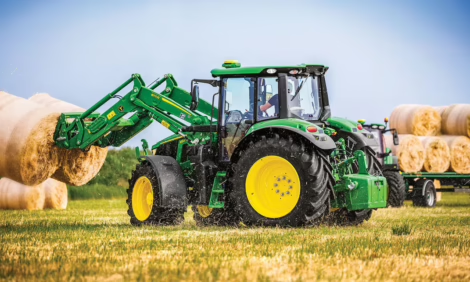



Field Test to Help Dairy Farmers Tackle Antimicrobial Resistance
Indian dairy farmers will be able to trial a new portable testing kit that can help target antibiotics to treat cows and buffalo, and tackle the global threat of antimicrobial resistance (AMR).The new project is funded by Innovate UK, the UK’s innovation agency and sees partners including the University of Reading, Capillary Film Technology, Design Science and the National Institute of Animal Biotechnology work together to create an easy to use and portable test to tackle AMR in dairy farming.
In the first phase of the project, dairy farming and biomedical technology experts are working with molecular microbiologists and design experts to create a quick test that can help vets use specific antibiotics to treat mastitis in dairy cattle, reducing the overuse of antibiotics that is leading to AMR.
A rugged briefcase can be used on a farm or in a veterinary clinic by veterinary professionals to make an evidence-based selection of antibiotics for cows and buffalo suffering from bacterial infections such as mastitis.
Dr Partha Ray, a Lecturer in Animal Dairy Science at the University of Reading said:
“Dairy farming requires the almost constant use of a wide range of antibiotics to keep cattle healthy, much like other livestock sectors. However, the overuse of antibiotics due to the lack of a tool for rapid testing of AMR in disease-causing bacteria is contributing to the development and spreading of antimicrobial resistance.
“We have been working with partners in India where over one fifth of the world’s milk is produced to design and develop an AMR test kit to make field testing of antibiotic resistance as simple as possible. The goal here is to enable vets to make precise decisions about which antibiotics to use on cattle and limit the chances of bugs becoming resistant to them.”
The testing kit, Milk Guard, uses a new microcapillary technology that shows in around six hours which antibiotics can kill the bacteria in mastitic milk. The kit includes all of the necessary components and instructions to determine the right antibiotic without the need to send samples to a specialist laboratory.
Mastitis is a significant problem in India’s dairy herds, affecting milk production and quality, farm economics and animal welfare (Smith, et al., 2001). In India, the disease is estimated to account for nearly 70% of the losses incurred during milk production, costing the country more than the equivalent of £765 million annually.
Dr Alexander Edwards, an associate professor in biomedical technology at the University of Reading and Co-Founder and Director of Capillary Film Technology, said:
“The microcapillary strips that take a central role in the test kit are a bit like tiny test tubes, each able to divide milk from infected cows into over 200 individual samples (each 1/1000th of a mL), so growth can be measured with or without common antibiotics.”
“One of the main benefits of using these strips is that they are cheap to manufacture and are simple to use, with only a small amount of training to use effectively and can provide results without having to send samples off to a lab. At the best of times, that can take a day or two to get results but the new Milk Guard is designed that no matter how remote you are or what the infrastructure around you is, a vet can get a clinically significant result that can help them make an informed decision about how to treat mastitis."
Dr Bappaditya Dey and Dr Paresh Sharma at the National Institute of Animal Biotechnology, India said:
“Antimicrobial Resistance (AMR) is a major problem in the dairy sector in India and this innovative diagnostic kit for AMR detection will enable the Vets selecting the right antibiotic in a very short time, thereby helping immensely in the fight to tackle AMR.”


